United States Ambassador to the United Nations
| Ambassador of the United States to the United Nations | |
|---|---|
|
Seal of the United States Department of State | |
| Nominator | Barack Obama |
| Inaugural holder |
Edward Stettinius, Jr. as Ambassador Extraordinary and Plenipotentiary |
| Formation | 1945 |
| Website | U.S. Mission – UN |
The United States Ambassador to the United Nations is the leader of the U.S. delegation, the U.S. Mission to the United Nations. The position is more formally known as the "Permanent Representative of the United States of America to the United Nations, with the rank and status of Ambassador Extraordinary and Plenipotentiary, and Representative of the United States of America in the Security Council of the United Nations"; it is also known as the U.S. Permanent Representative, or "Perm Rep", to the United Nations.
The U.S. Permanent Representative, currently Samantha Power, is charged with representing the United States on the U.N. Security Council and during almost all plenary meetings of the General Assembly, except in the rare situation in which a more senior officer of the United States (such as the U.S. Secretary of State or the President of the United States) is present. Like all United States ambassadors, he or she must be nominated by the U.S. President and confirmed by the Senate.
Many prominent U.S. politicians and diplomats have held the post, including Adlai Stevenson II, George H. W. Bush and Madeleine Albright.
Cabinet status
The Ambassador to the United Nations is not a member of the United States Cabinet, but the position is frequently accorded cabinet-level rank. It held this status through the Ford, Carter, and Reagan administrations but was removed from cabinet rank by George H. W. Bush, who had previously held the position himself. It was restored under the Clinton administration. It was not a cabinet-level position under the George W. Bush administration (from 2001 to 2009),[1][2] but was once again elevated under the Obama administration. Former UN Ambassador John R. Bolton has publicly opposed the granting of cabinet-level status to the office, stating "One, it overstates the role and importance the U.N. should have in U.S. foreign policy, second, you shouldn't have two secretaries in the same department".
Office holders
The following is a chronological list of those who have held the office:
| # | Image | US Ambassador to UN | Years served | U.N. Secretary-General | U.S. President |
|---|---|---|---|---|---|
| 1 |  |
Edward Stettinius, Jr. | 1945–1946 | Gladwyn Jebb (acting) | Harry S. Truman |
| 1946 | Trygve Lie | ||||
| — |  |
Herschel V. Johnson (acting) |
1946–1947 | ||
| 2 |  |
Warren Austin | 1947–1952 | ||
| 1953 | Dag Hammarskjöld | ||||
| 3 |  |
Henry Cabot Lodge, Jr. | January 12, 1953 – September 2, 1960 | Dwight D. Eisenhower | |
| 4 |  |
James Jeremiah Wadsworth | 1960–1961 | ||
| 5 |  |
Adlai Stevenson | 1961 | John F. Kennedy | |
| 1961–1963 | U Thant | ||||
| 1963–1965 | Lyndon B. Johnson | ||||
| 6 |  |
Arthur Goldberg | 1965–1968 | ||
| 7 |  |
George W. Ball | June 26, 1968 – September 25, 1968 | ||
| 8 | 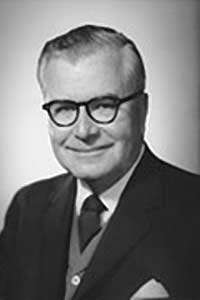 |
James Russell Wiggins | 1968–1969 | ||
| 9 |  |
Charles Woodruff Yost | 1969–1971 | Richard Nixon | |
| 10 |  |
George H. W. Bush | March 1, 1971 – January 1, 1972 | ||
| January 1, 1972 – January 18, 1973 | Kurt Waldheim | ||||
| 11 |  |
John A. Scali | 1973–1974 | ||
| 1974–1975 | Gerald Ford | ||||
| 12 |  |
Daniel Patrick Moynihan | 1975–1976 | ||
| 13 | 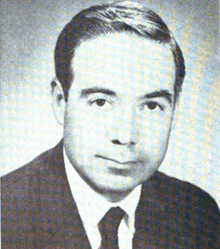 |
William Scranton | March 15, 1976 – January 19, 1977 | ||
| 14 |  |
Andrew Young | 1977–1979 | Jimmy Carter | |
| 15 | 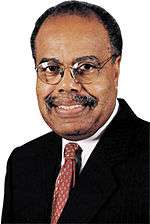 |
Donald McHenry | 1979–1981 | ||
| 16 | 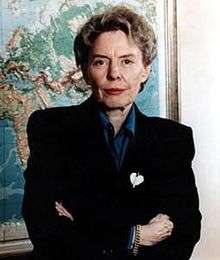 |
Jeane Kirkpatrick | 1981 | Ronald Reagan | |
| 1982–1985 | Javier Pérez de Cuéllar | ||||
| 17 |  |
Vernon A. Walters | 1985–1989 | ||
| 18 | 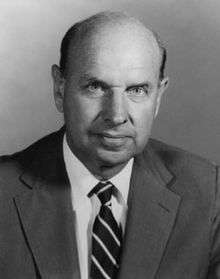 |
Thomas R. Pickering | 1989–1991 | George H. W. Bush | |
| 1992 | Boutros Boutros-Ghali | ||||
| 19 |  |
Edward J. Perkins | 1992–1993 | ||
| 20 |  |
Madeleine Albright | January 27, 1993 – January 1, 1997 | Bill Clinton | |
| January 1 – January 21, 1997 | Kofi Annan | ||||
| 21 |  |
Bill Richardson | February 13, 1997 – August 18, 1998 | ||
| — | 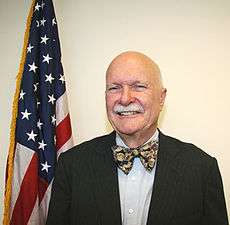 |
Peter Burleigh (acting) |
August 18, 1998 – August 25, 1999 | ||
| 22 |  |
Richard Holbrooke | August 25, 1999 – January 20, 2001 | ||
| — |  |
James B. Cunningham (acting) |
January 20, 2001 – September 15, 2001 | George W. Bush | |
| 23 |  |
John Negroponte | September 15, 2001 – July 1, 2004 | ||
| 24 | |
John Danforth | July 1, 2004 – January 20, 2005 | ||
| — |  |
Anne W. Patterson (acting) |
January 20 – August 1, 2005 | ||
| 25 |  |
John R. Bolton Recess Appointment Never Confirmed by the U.S. Senate |
August 1, 2005 – December 9, 2006 | ||
| — |  |
Alejandro Daniel Wolff (acting) |
December 9, 2006 – January 1, 2007 | ||
| January 1, 2007 – April 17, 2007 | Ban Ki-moon | ||||
| 26 |  |
Zalmay Khalilzad | April 17, 2007 – January 22, 2009 | ||
| 27 |  |
Susan Rice | January 22, 2009 – July 1, 2013 | Barack Obama | |
| — |  |
Rosemary DiCarlo (acting) |
July 1 – August 1, 2013 | ||
| 28 |  |
Samantha Power | August 2, 2013 – present |
See also
Notes
- ↑ Kelemen, Michele (December 1, 2008). "U.N. Envoy Nominee Rice Known As Smart, Tough". National Public Radio. Retrieved January 21, 2009.
The head of the United Nations Foundation, a Washington-based advocacy group, released a statement praising Rice as well as Obama's decision to make the post of U.N. ambassador a Cabinet-level position once again—as it was during the Clinton years.
- ↑ Cooper, Helene (November 20, 2008). "Clinton Decision Holding Up Other Obama Choices". New York Times. Retrieved February 9, 2009.
Ms. Rice could get the post of United States ambassador to the United Nations, a cabinet-level position under President Clinton. President Bush downgraded the position when he came into office
External links
- United States Mission to the United Nations
- Bureau of Diplomatic Security (DS)
- U.S. Department of State's listing of U.S. ambassadors to the United Nations
| ||||||||||
| ||||||||||||||||||||||||||||||

